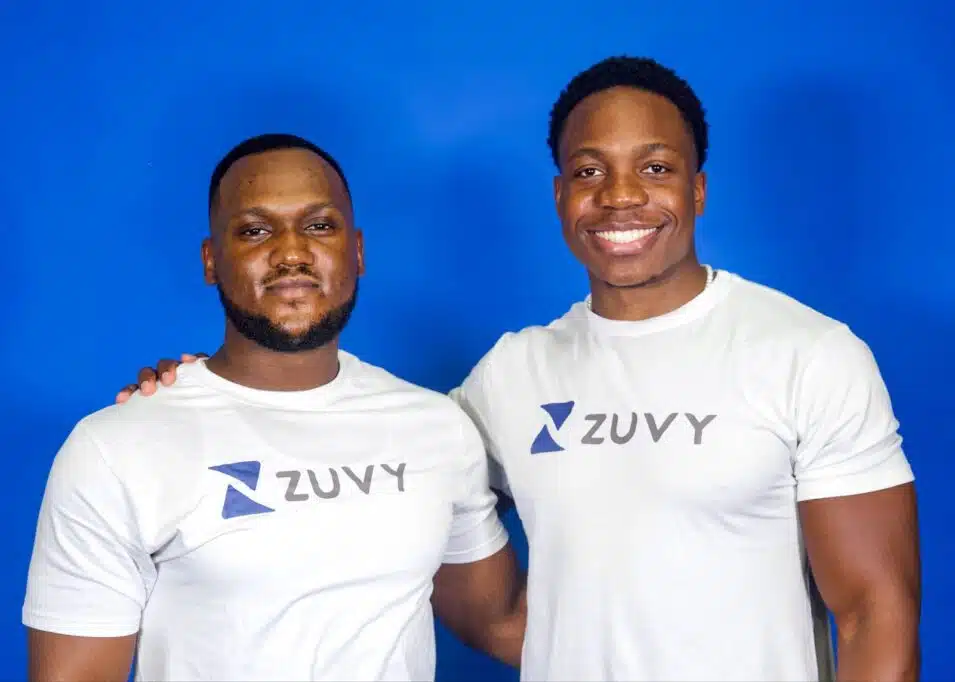Bonjour,
Victoria from Techpoint here,
Here’s what I’ve got for you today:
- Kenyan ISPs block Telegram during protest coverage ban
- Why Nigeria’s new data law matters to startups
- Zuvy founders step down as BAS takes over
Kenyan ISPs block Telegram during protest coverage ban

Kenya has started blocking access to Telegram as protests flare up across the country, with data from Internet watchdog NetBlocks showing that the popular messaging app, as of yesterday, was either partially or completely inaccessible on several networks. It’s all happening as tensions rise on the anniversary of the June 25 protests, a day that’s becoming a rallying point for widespread frustration.
Earlier yesterday the Communications Authority of Kenya ordered all TV and radio stations to pull the plug on live coverage of the protests. The official line? Public safety concerns and alleged breaches of the constitution. But for many, it’s looking a lot like censorship and it’s fuelling even more outrage.
With both live broadcasts and Telegram now out of reach, digital rights advocates and civil society groups are sounding the alarm. They fear this could be the first step toward a full-blown Internet shutdown, a tactic we’ve seen used in other countries to silence dissent during politically sensitive times.
These protests are far from just noise on the streets. They’re rooted in deep anger over rising costs of living, poor governance, and broken promises. And as traditional media fades into silence, Kenyans are scrambling for alternatives, turning to VPNs and encrypted apps to stay online and stay connected.
Groups like NetBlocks are keeping a close eye on things, warning that this clampdown on Telegram might just be the beginning. If things escalate, we could see even more platforms targeted, tightening the grip on how people communicate and organise.
As the protests show no signs of slowing down and the government doubles down, rights groups are calling for calm and for the authorities to respect the rights of Kenyans to protest, to speak, and to stay informed.

Victoria Fakiya – Senior Writer
Techpoint Digest
Stop struggling to find your tech career path
Discover in-demand tech skills and build a standout portfolio in this FREE 5-day email course
Why Nigeria’s new data law matters to startups

A decade ago, nobody really asked what happened to their personal data after filling out an online form or downloading an app. In Nigeria, data privacy just wasn’t a thing most people thought about. Not users and definitely not the companies collecting the data. Tech was booming, smartphones were everywhere, and startups were sprouting up daily. But behind all the buzz, no one was watching where the data went.
That changed in 2018 when the Cambridge Analytica scandal rocked the world. Suddenly, data protection wasn’t just a European problem. Nigerians saw that their data could be weaponised, and the government started paying attention. By 2023, Nigeria had passed the Nigeria Data Protection Act (NDPA). But the real shake-up came with GAID 2025, a new directive that added more bite to the law.
Under GAID 2025, even small startups are required to appoint Data Protection Officers (DPOs) and conduct something called a Data Protection Impact Assessment (DPIA). For young businesses still figuring out payroll, it felt like overkill. But legal experts like Vanessa Obi argue it’s not just bureaucracy, it’s about building trust from day one. “If your product collects data, you should be responsible about how it’s used,” she says.
Obi points out that you don’t need a full-time privacy guru to comply. Startups can outsource to licensed compliance firms, called DPCOs, who can handle all the regulatory bits while the startup focuses on building. And as you grow? Then you can afford to hire your own internal team.
But laws are only part of the puzzle. Nigerians now have the right to access, correct, or delete their data, but exercising those rights can be complicated. That’s where tools like the Standard Notice to Address Grievance (SNAG) come in a simple form introduced in GAID 2025 that helps everyday people raise complaints without needing a lawyer.
The message is clear: the era of ignoring data protection is over. Whether you’re a startup or a user, knowing your rights and responsibilities isn’t just smart; it’s necessary. Want to know where the law still needs to grow? Juliana’s story has the scoop.
Zuvy founders step down as BAS takes over

Zuvy, a Nigerian fintech startup known for helping small businesses access invoice financing, has just been scooped up by the BAS Group. The diversified financial services group now owns a majority stake — over 50% — though they’re keeping tight-lipped on exactly how much they paid. Still, based on Zuvy’s past funding figures, the deal could be worth between $1.5 million and $3 million.
The acquisition marks a big step for BAS Group, which only recently launched a lending business focused on collateralised loans. With Zuvy now under its wing, the group is moving into uncollateralised lending, a notoriously tricky but potentially rewarding space for serving Africa’s SMEs.
Zuvy will continue to operate independently, and no job cuts are expected. However, there is a leadership shake-up: BAS Group COO Adnan Kayode is taking over as the new head of Zuvy. The startup’s original co-founders, Angel Onuoha and Ahmed Shehu, are stepping back from day-to-day operations to focus on a new US-based healthtech venture called Avelis Health, which has already landed a spot in Y Combinator.
Founded in 2023, Zuvy made a name for itself by financing over ₦1 billion worth of invoices for 1,500+ small businesses, especially in the FMCG, healthcare, and supply chain sectors. That kind of impact, and a reportedly low non-performing loan rate, is what drew BAS Group’s attention in the first place.
CEO of BAS Group, Abdulateef Hussein, says this deal isn’t just a portfolio expansion; it’s part of a broader mission to build a “comprehensive, technology-enabled financial ecosystem for Africa.” And with competition from similar players like Vendorcredit, the acquisition gives BAS an edge in the race to serve underbanked businesses.
While Onuoha and Shehu are off to chase healthcare disruption in the US, they’ll still hold onto minority stakes in Zuvy. None of the startup’s previous investors are exiting either, signalling continued confidence in what the company might do next under BAS’ leadership.
In case you missed it
- Seychelles dusts Nigeria, South Africa, others as it recieves 33% of Africa’s blockchain funding
What I’m watching and reading
- Cheating Expert Answers Casino Cheating Questions | Tech Support | WIRED
- Don’t enter a Nigerian Hospital without watching this!
Opportunities
- MasterCard is recruiting a Head of Impact Labs. Apply here.
- Jumia is hiring a Chief Marketing Officer (Pipeline). Apply here.
- Sun King is looking for a Workforce Planning Analyst, Nigeria. Apply here.
- Building a startup can feel isolating, but with Equity Merchants CommunityConnect, you can network with fellow founders, experts, and investors, gaining valuable insights and exclusive resources to help you grow your business. Click here to join.
- Help us make Techpoint better for you! Your feedback shapes what comes next (your responses may potentially save my job. A bit dramatic, but still). It will only take 30 seconds to tell us what works and what doesn’t. Fill it here.
- To pitch your startup or product to a live audience, check out this link.
- Have any fresh products you’d like us to start selling? Check out this link here.
- Follow Techpoint Africa’s WhatsApp channel to stay on top of the latest trends and news in the African tech space here.
Have a terrific Thursday!
Victoria Fakiya for Techpoint Africa.











